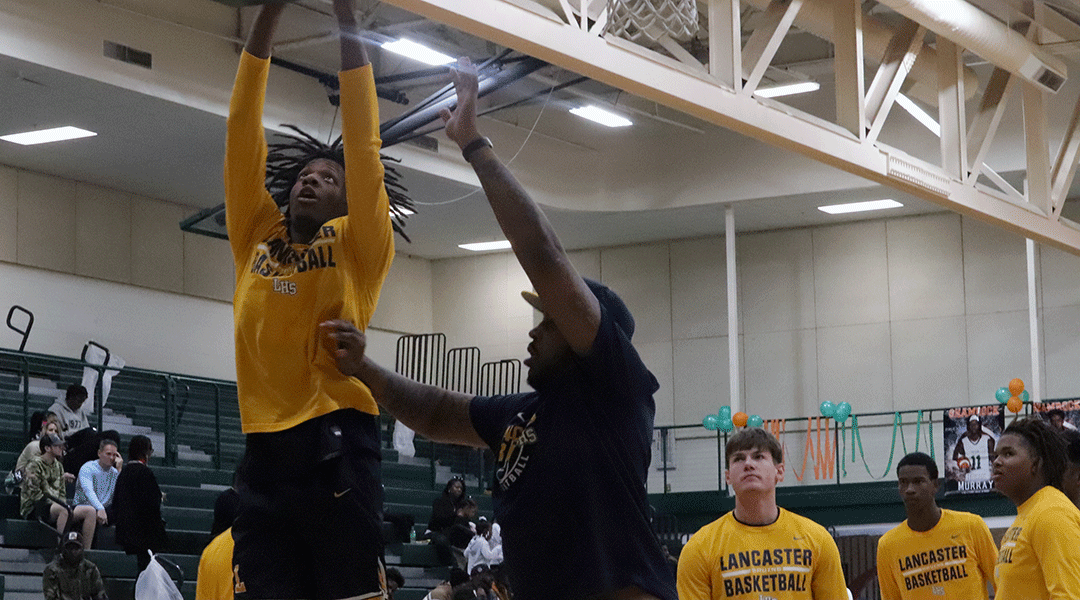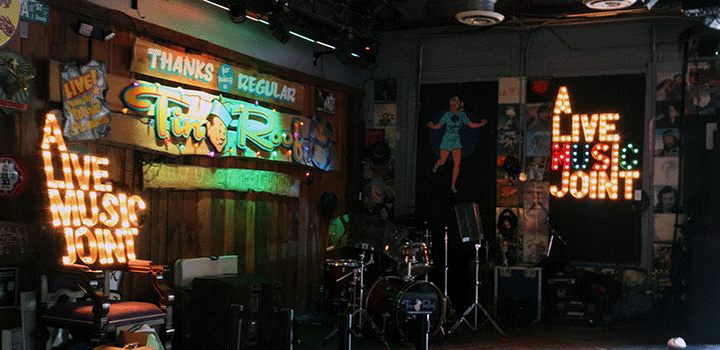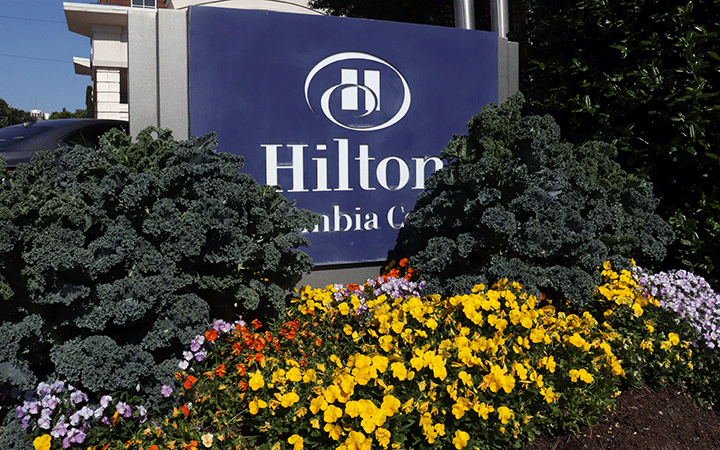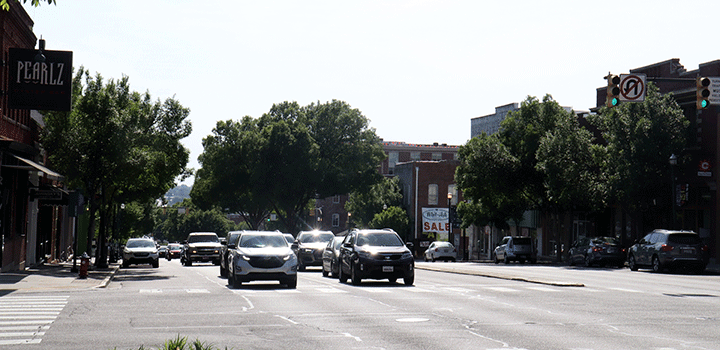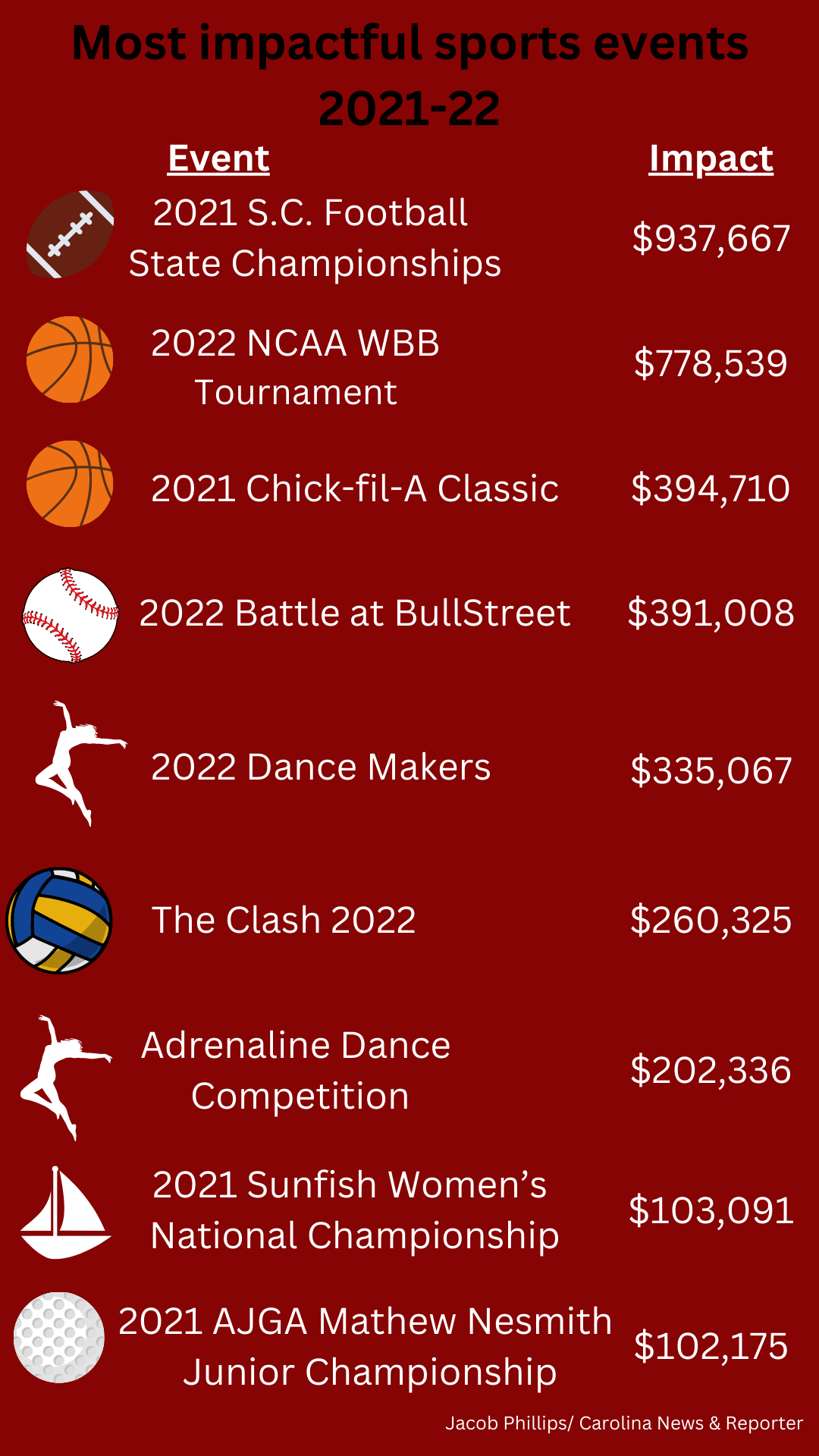The 2023 MLK Bash high school basketball competition took place in January and included many teams from around the state, including Lancaster. The Bruins beat Spring Valley 57-54 in overtime. (Photos by Jacob Phillips)
As thousands of tourists poured into Columbia in mid-March for the first round of the NCAA Women’s Basketball Tournament, the city’s typical laid-back weekend routine was anything but laid back.
Fan-pods of Gamecock garnet, South Florida green, Marquette navy green and Norfolk State yellow shopped and drank in the Vista and along Columbia’s Main Street.
Some grabbed a drink or a bite to eat from the many Columbia bars and restaurants while waiting for the games to begin at Colonial Life Arena.
Others checked into their hotels and enjoyed some downtime before two-and-a-half hours of cheering.
Some residents are annoyed by the increased traffic and longer restaurant wait times. But the games are creating a buzz downtown and putting more feet on the street
“You see a lot more foot traffic just around here from things,” said Tin Roof general manager Corey Spigner, whose music bar and restaurant is just a short walk from Colonial Life. “We’ve always kind of played second fiddle to Charleston and Greenville. And now we’re kind of making our own footprint,”
Boosting business
The numbers aren’t yet in on the economic impact made by hosting this year’s early NCAA tournament games, but last year’s games had a substantial effect last.
The 2022 NCAA Women’s Basketball Tournament had an economic impact of $778,539 and attracted more than 18,000 tourists, according to a report by Experience Columbia SC, the city’s tourism bureau.
The 2021 high school football state championships had an even greater economic impact, Experience Columbia said.
Those championship games brought in an estimated 20,000 people, with an estimated economic impact of $937,66.
Columbia held 38 sporting competitions in the 2021-22 fiscal year, which added an estimated $5.1 million to the economy, according to Experience Columbia.
USC isn’t the only driver.
Youth sports, adult recreation and professional and amateur league competitions are common in Columbia.
Four of these events brought more than 1,000 tourists to the city last year.
These were the 2021 high school basketball Chick-fil-A Classic (6,600); the 2022 ClemsonSouth Carolina baseball game at Segra Park dubbed the Battle at Bull Street (9,070); the 2022 dance convention and competition DanceMakers (1,100); and the professional volleyball competition The Clash 2022 (2,000).
Big events like the NCAA tournament and SEC championships are flashy and bring national attention.
But smaller recreational and youth contests contribute the most economically because they are recurring.
“Those are the ones that are the backbone because they bring families,” Experience Columbia sports executive director Scott Powers said. “Most of our athletic sports facilities are in the suburbs, and are not in the downtown area.”
Those visitors don’t just spend money on attending events. They also pay for food, hospitality and entertainment.
“They’re coming in town with an allotted amount of money in their mind to already spend,” Spigner said.
Hotels benefit, too
The hotel industry is among the biggest beneficiaries of sports tourism.
Experience Columbia partners with hotels across the city to make sure tourists have a comfortable place to stay.
Columbia SC Sports, the sports division of Experience Columbia, reported 6,296 hotel room nights had been booked because of sports events in 2021-22.
“When we’re working collectively with the hotels, knowing which hotels are busy at what time of the year or when they need more assistance, it’s helping them in their downtime,” Powers said.
USC also partners with hotels when it hosts large events, including this year’s NCAA tournament games.
“We have four team hotels, and then I have one hotel for officials,” USC Associate Athletic Director Megan Kennington said. “They’re very specific on what they want us to offer.”
Sleeping at hotels and eating at restaurants aren’t the only thing visitors spend their time doing.
Columbia’s various recreational spots and retail establishments are also a big draw. People can enjoy time on the river, take a trip to the zoo or visit one of the city’s many museums.
Part of what keeps the tourism industry near the top of Columbia’s economy is attracting tourists back to the city after competitions.
“There are lots of places that bring in people,” Powers said. “When we get people into town, they are three times more likely to choose Columbia (again) than they are if they’ve never seen it.”
Making the investment
Part of what makes Columbia such a hot destination for sporting events is the different types of venues and facilities the city has invested in.
Columbia SC Sports has 43 different venues listed on its website, including Colonial Life Arena, USC’s Williams-Brice Stadium, Segra Park and Founders Park.
Other smaller facilities for youth and recreational sports sit outside of the city.
The venues in Columbia have a reputation for being in top condition and taking care of the people who hold events at them – a big plus for any investor or sponsor, said Powers.
Hosting events, especially sporting competitions, can prove costly if the wrong decisions are made, Powers said.
“It’s obviously much more than just what everybody sees Game Day,” USC’s Kennington said. “There’s a lot of man hours at the arena, either the changeover going in, or us just being there day by day at practices and press conferences and all of those type of things.”
One of the tasks of Columbia SC Sports is to find events that will benefit the city and then convince the event organizer to bring them here.
“We look at other destinations that have similar facilities that are within our competitive set and see what’s been successful,” Powers said.
Those investments have paid off so far. Powers said he expects that to continue.
Businesses invest in sporting events, too.
“We actively look at the schedules,” said Tin Roof’s Spigner.“We know who’s going to be at home this year, who’s going to come into town. (But) that’s just when it comes to football.”
Restaurants may spend money on specific decor for a game so their watch party attracts more customers.
Retail shops buy products related to an event, hoping those goods will fly off the shelves.
“We’ll line up entertainment, line up vendors out in the patio, line up nonprofits, do fundraisers, just stuff to have things going on,” Spigner said. “… it’s all to make more sales.”
The Tourism Tap
Sports is big. But there are other in-city tourist draws too, concerts and conventions especially.
Promoting itself across its social media platforms with 200,000 combined followers helps the city get the word out that Columbia is a great place to visit.
As a result, Columbia had 15.1 million visitors in 2021-22, which was about 100,000 people shy of matching the pre-pandemic number in 2019, according to Experience Columbia.
That influx of people spent $1.5 billion, leading to a $2.4 billion in economic impact and 21,000 jobs, according to Experience Columbia.
“You just see people walking around everywhere,” Spigner said. “There’s a vibrancy in the city. … People are asking where to go. The restaurants are booming, bars are booming.”
Spigner said the city’s continuous effort to attract more events is yielding positive results.
“The city’s doing a great job bringing not just sporting events, but concerts and everything else,” Spigner said. “It’s driving people from all around the state in. And it’s proving that people in this city know how to go out and spend money.”
Live music bar and restaurant, Tin Roof, is just a short walk from Colonial Life Arena and has benefited from the many events that go on in the city.
The Hilton Columbia Center was one of four hotels that Columbia S.C. Sports partnered with for the 2023 NCAA women’s basketball tournament.
The Vista area of Columbia is filled with businesses that see increased foot traffic when large events come to town.

